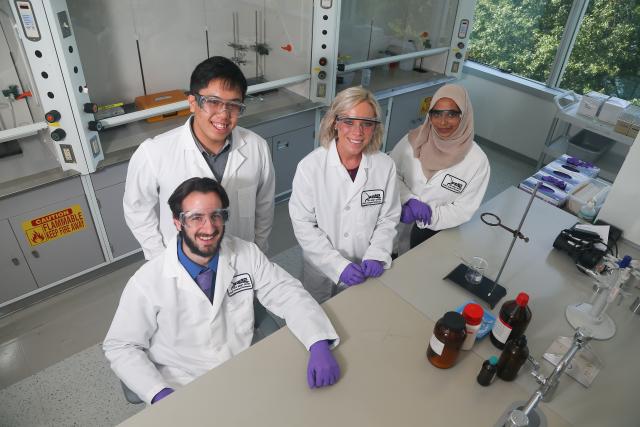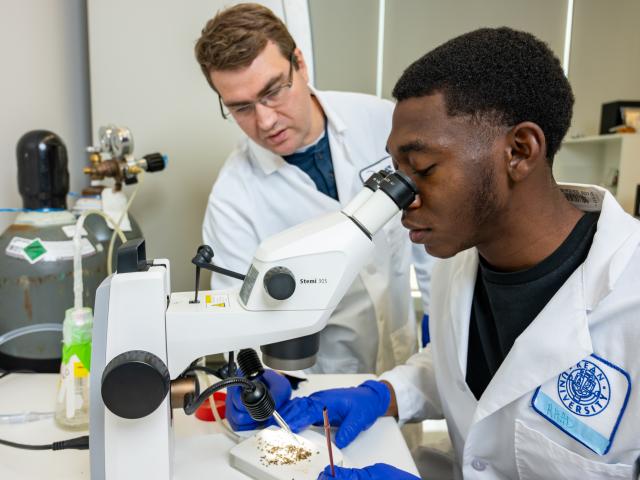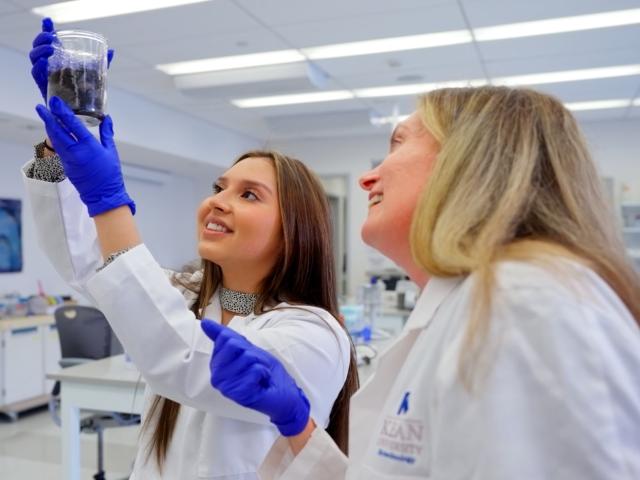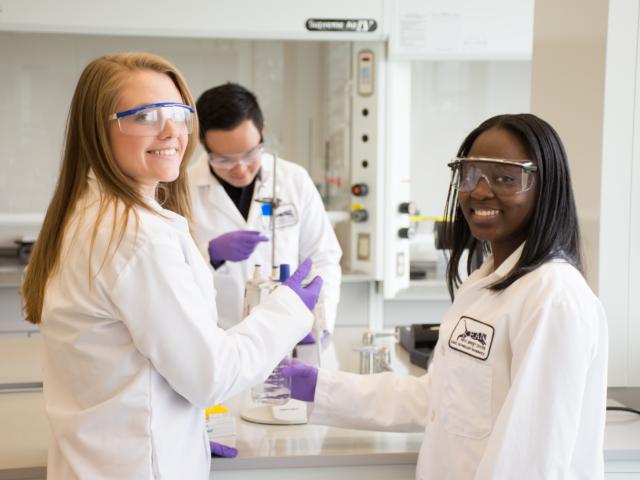NIH Undergraduate Research Training Initiative for Student Enhancement (U-RISE) Program
The goal of the NIH Undergraduate Research Training Initiative for Student Enhancement (U-RISE) program is to promote broad participation in the biomedical research workforce by strengthening research training environments and expanding the pool of well-trained students who complete their baccalaureate degree, and transition into and complete biomedical, research-focused higher degree programs (such as Ph.D. or M.D./Ph.D.).


This funding announcement provides support to eligible, domestic organizations to develop and implement effective, evidence-informed approaches to biomedical undergraduate training and mentoring to support the development of a biomedical research workforce that will benefit from the full range of perspectives, experiences and backgrounds needed to advance discovery.

Program Details
The overarching goal of the KUTP is to train undergraduates in research excellence, unite them in a diverse cohort to strengthen their social capital underlying STEM identity and prepare them for the next phase of the biomedical research career pathway. To support the KUTP overarching goal of developing a diverse pool of undergraduates who complete their BS and complete biomedical, research-focused higher-degree programs, the activities and supports proposed in the KUTP will leverage the social and socio-cultural capital of STEM faculty and students in the setting of a culturally responsive curriculum.
Program Activities
- Professional development workshops and presentations
- Specialized mentor training for faculty researchers
- Individual Development Plan (IDP) to guide each student’s research training
- Personalized academic advising to pursue a research career
- Intensive research mentoring by RIT and external scientists
- Paid research experience at RIT during the academic year
- Paid full-time off campus research opportunity
Fellow Support
KUTP fellows will receive financial support and rigorous academic and research-skills training. The KUTP Fellows will receive triad mentoring, engage in advanced, independent academic and industry research opportunities, and engage in cohort activities that strengthen Fellows’ sense of belonging, self-efficacy, and STEM identity, which are intended to prepare them for graduate school. Cohort activities will include enhanced seminars on ethics, responsibility of research training, and other research professionalization topics.
- Tuition support up to 60% after all other scholarships and/or grants have been applied (subject to available funding and NIH funding limits)
- Stipends (approximately $1,000 per month for up to three years)
- Travel support to attend regional and national scientific conferences
- Support to conduct summer research during the academic semester and summer.
- Individualized Mentoring
- Professional Development Workshops
Program Requirements and Eligibility
The Undergraduate Research Training Initiative for Student Enhancement (U-RISE) is a grant-funded training program sponsored by the National Institute of General Medical Sciences and National Institutes of Health (NIGMS/NIH). The KUTP seeks to develop a diverse pool of well-trained undergraduates who complete their baccalaureate degree with skills to successfully transition into and complete a biomedical research-focused higher degree program (e.g., Ph.D. or M.D./ Ph.D.). The program supports full-time juniors and seniors, in some cases rising Sophomores) who intend to pursue a Ph.D. The program does not support students interested in earning an MD or other health professional degrees (e.g., DDS, Pharma, etc.), this program is intended only for students with the intent of earning a doctoral degree with the ultimate goal of having a career in biomedical related research
Students with 1-3 years left until graduation can apply to become a KUTP Fellow.
Trainees must:
- Be a full-time student at Kean University
- Have a cumulative GPA of 3.0.
- Commit to pursuing a Ph.D. in a biomedical research field.
- Have completed at least the first two years (60 credit hours) of the curriculum leading to a B.S. degree in Biology, Psychology, Biochemistry, Chemistry, Mathematics, Statistics, Computer Science, Engineering (or other fields related to biomedical science).
- Submit a letter of recommendation from at least two Kean Faculty
- Apply online with all required materials (unofficial transcript, personal statement, and Resume).
All U-RISE trainees:
- Students must meet with the KUTP Leadership Team, including their individually assigned mentor(s), to develop and review their individual development plans every semester.
- Are required to participate in counseling and career development workshops
- Attend co-curricular events, presentations, and workshops to learn about current topics in STEM science, research ethics, rigorous research practices, and more
- Engage in professional communication training
- Meet regularly with other trainees to participate in peer mentoring
- Engage in paid research in their mentor’s lab for 8-12 hours/week during the academic year
Timeline
Sophomore trainees:
- Are matched with a research mentor in your discipline
- Take the RCR course
- Take the CITI course
- Engage in paid full-time mentored summer research
- Attend the Annual Biomedical Research Conference for Minoritized Scientists (ABRCMS) in November
- Attend U-RISE workshops and presentations
Junior trainees:
- Submit an abstract proposal to ABRCMS and present a poster or give a presentation at ABRCMS
- Learn about applying to graduate school and preparing for the GRE
- Take Science Writing
- Take the online Responsible Conduct of Research certificate course (RCRcc) and the online Rigor and Reproducibility certificate course (R&Rcc) (both self-paced)
- Conduct paid, full-time research at a major university with one of our external U-RISE mentors during the summer after junior year
- Identify and visit PhD programs of your choice
- Complete and submit graduate school applications
Senior trainees:
- Submit an abstract for at least one national conference in your discipline, and present at the conference if accepted
- Present at ABRCMS
- Identify and visit PhD programs of your choice
- Complete and submit graduate school applications
